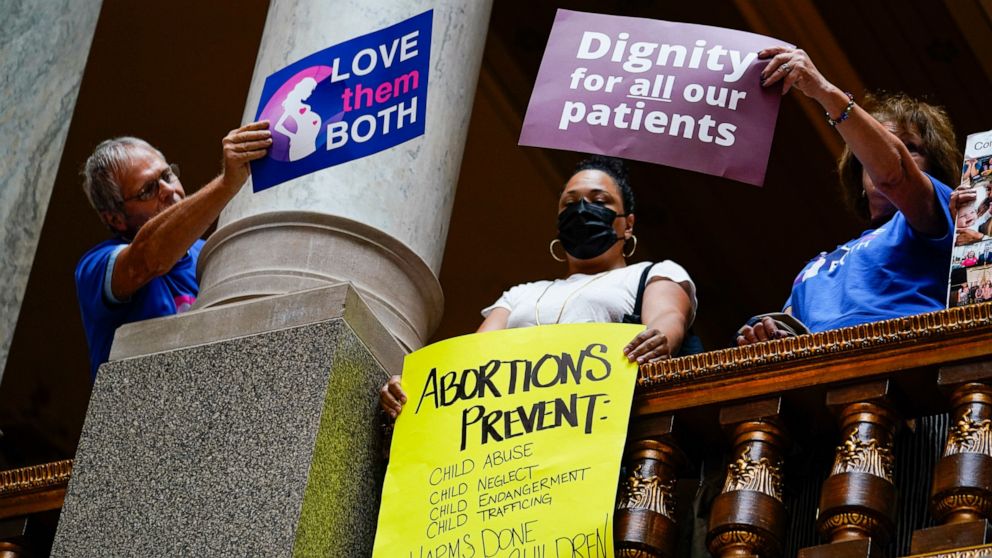CHEYENNE, Wyo. — A judge in Wyoming heard arguments Wednesday from a firebombed women’s health clinic and others over whether to temporarily block a state abortion ban on the day it took effect.
The U.S. Supreme Court formally issued its judgment Tuesday in the June 24 Dobbs v. Jackson ruling — a step that allows some state trigger laws to ban abortion to take effect.
Attorneys arguing before Teton County District Judge Melissa Owens, in Jackson, disagreed over whether the Wyoming Constitution provided a right to abortion. The hearing continued into late morning with no immediate ruling from Owens on a requested temporary restraining order against the ban.
Those suing include a nonprofit opening a Casper women’s and LGBTQ health clinic that would have offered abortions. A May arson attack has set back the clinic’s opening from mid-June until at least the end of this year, months past the start of Wyoming’s new abortion ban.
Wyoming’s hearing comes one day after Indiana Republican lawmakers narrowly advanced a plan to ban nearly all abortions in the state, despite opposition from abortion-rights supporters, who say the bill goes too far, and anti-abortion activists, who say it doesn’t go far enough.
Wyoming was among states that recently passed abortion bans should the U.S. Supreme Court overturn Roe v. Wade, which happened June 24. After a review, Gov. Mark Gordon, a Republican who signed the abortion “trigger” bill in March, gave the go-ahead for the law to take effect Wednesday.
The law will outlaw abortions except in cases of rape or incest or to protect the mother’s life or health, not including psychological conditions. Wyoming until Wednesday had allowed abortions up to the point of viability outside the mother, or around 23 weeks into pregnancy.
The four Wyoming women and two nonprofits that sued Monday claim the new law violates several rights guaranteed by the state constitution, including a “fundamental right to be left alone by the government.”
The lawsuit claims the abortion ban will harm the women — two obstetricians, a pregnant nurse and a University of Wyoming law student — by outlawing potentially life-saving treatment options for their patients or themselves.

